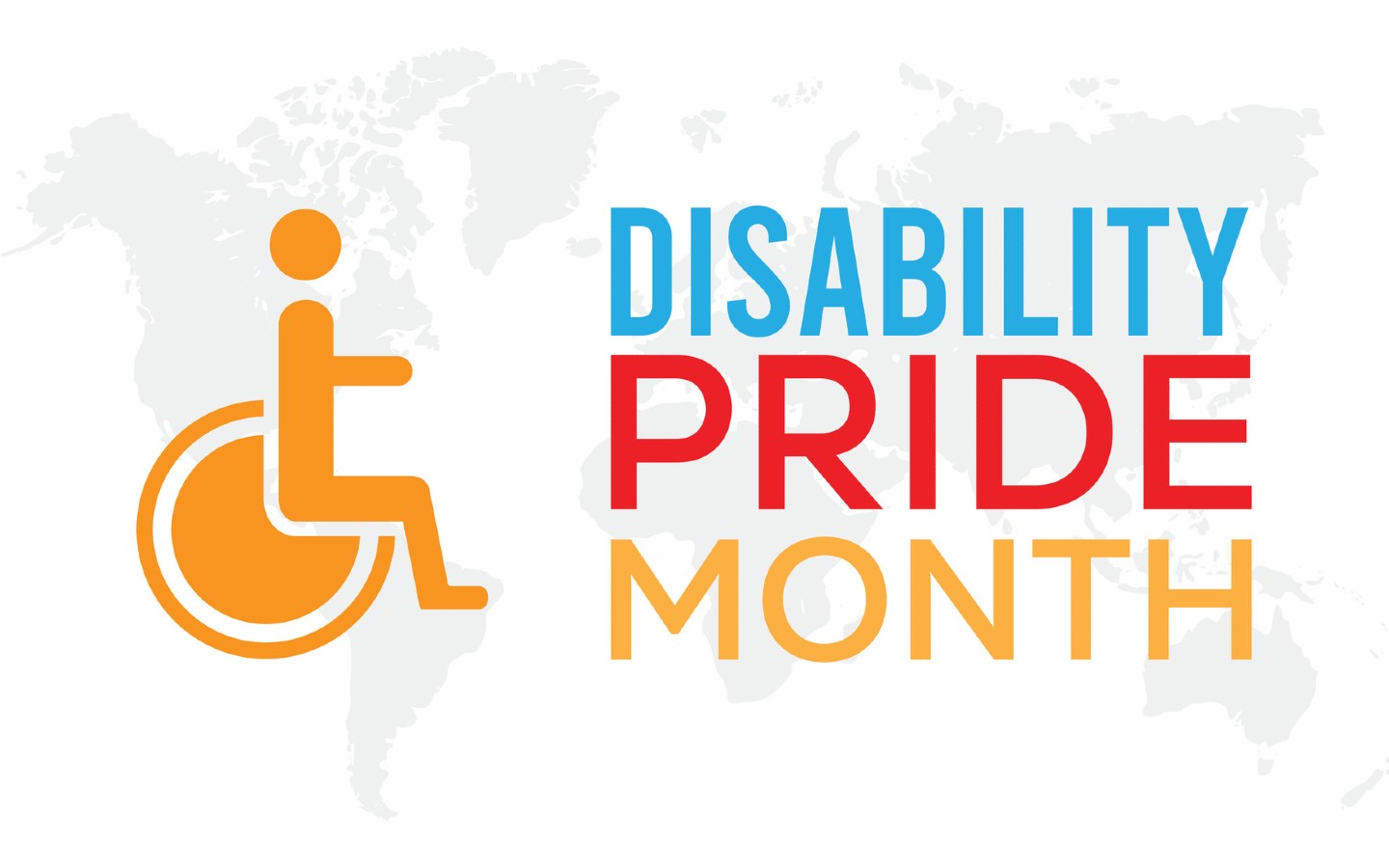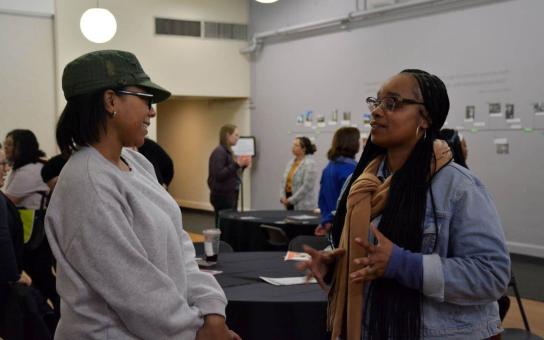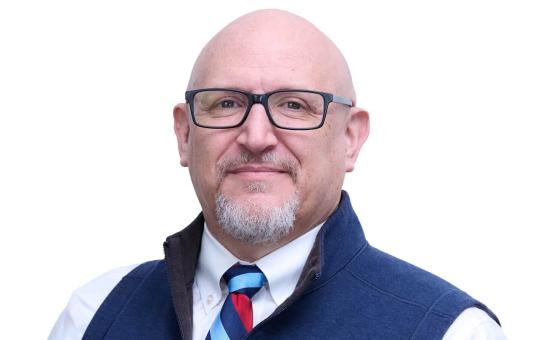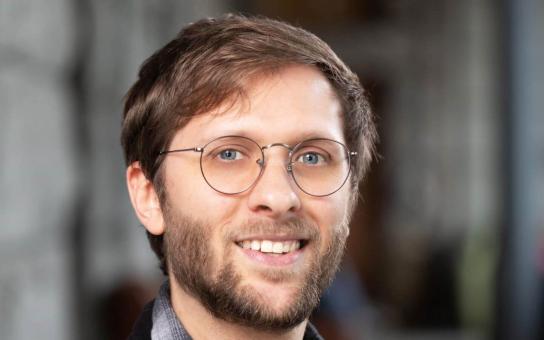
This Disabilities Pride Month, Roosevelt is highlighting the achievements of its students, faculty and staff from around the University. As an institution founded on the tenets of social justice and equitable access to education, the Roosevelt community has striven to ensure that the disabilities are treated with the same deference. From the student support services and accommodations provided by Disability Services in the Learning Commons, to faculty and staff trainings and the student-led organizations like Advocacy for Invisible Illnesses and Disabilities, Roosevelt continues to grow to meet the diverse needs of its community.
The Disability Services offices is a branch of Roosevelt’s Learning Commons. Services provided are voluntary, completely confidential and are available to all University students, faculty and staff. Traditional barriers to access such as availability and social stigma are mitigated by dedicated staff members who make themselves available and educated to fulfill the needs of the community. The Chicago-campus Disability Services Specialist Nicole Yoon, has dedicated her career to ensuring students are aware of and able to access the services they are entitled to. To prospective and current students, Yoon wants to share that “if you need academic support, we’ve got your back.” She continues by saying, “Roosevelt’s commitment to diversity extends to multiple different identities, including disabilities. You deserve to have these supports, and if have any questions about whether or not you qualify, please never hesitate to come by our offices or reach out.”
This disabled community is well represented throughout each of the University’s colleges and programs, and is not limited by major, interest or educational level. In spring of 2024, disability services had over 300 students registered with the office. Many of our student athletes, organizational leaders and talented academics live with visible or invisible disabilities. One student organization working to meet the needs of disabled students is Advocacy for Invisible Illnesses and Disabilities (AIID). Founded by student Kay Dietrich, AIID was established to meet the special needs of all Roosevelt students. Together, they have created a welcoming environment for students to form friendships, plan events and help ensure the University is a safe and inclusive place for all of its students. In recognition of their service, Dietrich received an honorable mention for the Eleanor Roosevelt Social Justice Award at the 2024 Student Leadership Awards.
Another remarkable Roosevelt community member is one of the 2024 Commencement speakers, Phyllis Hampton. Hampton recently received her master’s in college counseling and student affairs, and plans to dedicate her career and abilities to assist impaired people. During her morning commencement speech, Hampton gave a moving speech in which she shared insight about her journey to Roosevelt, the development of her visual disability and her goals for the future. A Chicago native, Hampton earned her bachelor’s degree in computer science with a minor is business and had a successful professional degree before experiencing health challenges that led to the loss of her sight at age 37. Through her perseverance and the support she received from the Illinois Center for Rehabilitation and Education (ICRE-Woods), she was able to continue her education, work as a graduate assistant and pursue a career is disability advocacy. Phyllis Hampton’s story is one that speaks to the indomitable spirit of the Roosevelt community. Today, she continues to live by her motto: “I lost my sight, but my vision is crystal clear.”
The dedication of the Roosevelt community also extends to its faculty and staff. Professor Ellen O’Brian is the Director of Student Learning and Access, as well as an English profess for the College of Humanities, Education & Social Sciences. During her time at Roosevelt, she founded the Equity Teaching Academy, a faculty development program that centers on the issues of equity, difference and inclusion in teaching and learning. Through this program, faculty members are equipped with the tools they need to provide equitable teaching strategies and to create productive conditions for all community members.
As Roosevelt continues to strive to meet its goal of providing equitable access to education for students of all identities, the needs of disabled community members will continue to be a top priority.


